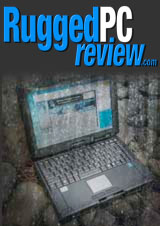« April 2023 | Main | March 2024 »
November 13, 2023
The Thunderbolt disaster
Back in September 2023, Intel very quietly introduced Thunderbolt 5. Intel had shown demos of it even in late 2022, but it won't be until sometime in 2024 before we'll actually start seeing Thunderbolt 5. And even then, gamers will likely get it first, because speed and bandwidth is what Thunderbolt excels at, and that's what gamers need. We're talking bi-directional transfer speed of up to 80Gbps, which is VERY fast.
Then there's resolution. It's been nearly a decade since 4k TVs passed old 1080p "full HD" models, and it's only a matter of time until 8k is here, at least with TVs. PC monitors are lagging behind a bit, with just Apple and LG using 5k screens and monitors, and laptop screens are farther behind yet. But 8k screens will eventually arrive and they will need high speed connection. Thunderbolt 5 will be ready for that. But other than that, what's the case for Thunderbolt 5?
Judging by how Thunderbolt 4 made out, not much. Thunderbolt started as a joint effort between Intel and Apple, combining the PCI Express and DisplayPort signals. Thunderbolt 1 and 2 had special connectors and were primarily used on Apple products. Thunderbolt 3 switched to the reversible USB-C connector, the same as, well, USB uses.
But it wasn't until Thunderbolt 4 appeared in 2020 that the world took notice, sort of. And that was mostly because Intel (stealth-)marketed Thunderbolt 4 as a "one wire solution." The sales pitch was that you could just plug a laptop or tablet into a Thunderbolt 4 dock, and, voila, duel external screens, all the peripherals and also all the charging you needed were right there, including that of the laptop or tablet itself. All of that with just one wire between the laptop and the TB4 dock. Some of our readers were very excited about that.
Except that, as we soon found out, it didn't always work. At RuggedPCReview.com, we tested a good number of high-end new rugged devices that supported Thunderbolt 4 and found that things are far from as simple as they should be.
The problem was that Thunderbolt 4 relies on a good deal of software, configuration and driver footwork. And on just the exact right cables. Far from being a universal plug-and-play standard, the Thunderbolt 4 controllers in computers and docks must first establish "handshakes" between them, figuring out what is and what it not supported, and to what degree. In our testing, almost every machine had one issue or another with different Thunderbolt 4 docks. And since Thunderbolt 4 also enlists the CPU in helping out, we saw overheating in some machines and sometimes substantial drops in performance.
As a result, there was lots of confusion about TB4/USB-C ports, what you could plug in and what they actually delivered. And TB4 was and is super-finicky about cables. And there is now the mounting problem of figuring out which USB port is a Thunderbolt 4 port (and what, exactly that is and means), and which is just a "regular" USB port and, if that, whether it can or cannot provide charging and how much.
Charging, too, was a problem, and often still remains a problem. Laptops, for example, may require so and so many watts to charge, and if a TB4 dock can't deliver that, there will be no charging. Sometimes even if the TB4 dock does meet the wattage requirement. That's because the laptop and the dock may not be able to negotiate a "power contract." And without that, no charging. So you never know if a dock or charger will actually work with TB4. That's very different from USB charging where, for the most part, you can charge anything with any USB charger.
Without that universal charging, what sense does it even make to have TB4 charging? Out there in the field, you want to be sure that your gear can be charged with ANY USB charger.
After lots of testing, we approached the TB4 folks at Intel directly. And got nowhere with our questions. That's not the way it's supposed to be.
It's over two years later now, December 2023. TB4 ports are on most new higher-end Windows laptops and tablets, together with regular USB-C ports. They still have all sorts of icons on them, incomprehensible to most, and sometimes they work and sometimes they don't. That, too, is not how it's supposed to be. And even if everything worked, Thunderbolt docks cost A LOT more than standard USB docks. It all kind of adds up to wondering how anyone ever thought this was a good idea.
Posted by conradb212 at 4:27 PM















